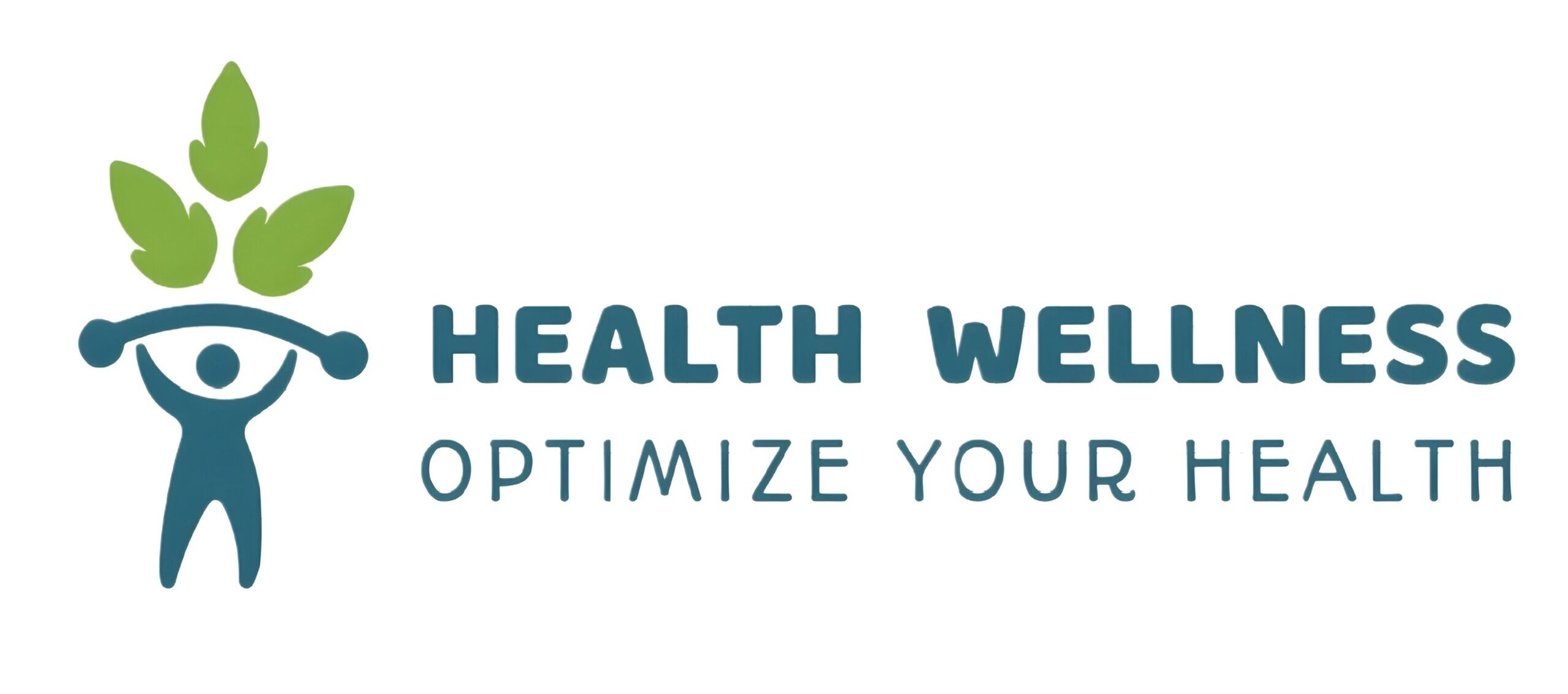Anxiety can substantially affect our daily lives. The National Institute of Mental Health reports that it touches everything from our relationships and work to self-worth and routine activities. My experience shows that reducing stress isn’t about quick fixes – it’s about finding what works best for you.
Many people struggle with stress and anxiety, but recent research brings hope. Scientists analyzed 10 different studies with 1,250 participants. The results showed that techniques like cognitive behavioral therapy work well to manage anxiety. On top of that, simple activities make a big difference. Just 150 minutes of weekly exercise and deep breathing can trigger powerful relaxation responses in our bodies.
After testing many stress relief methods myself, I’m eager to share 15 science-backed techniques that work well in 2025. How to Gain Weight Safely: A Doctor’s Guide to Healthy Weight Gain (2025). These solutions can help you take back control and improve your quality of life. They work whether you need occasional stress relief or long-term anxiety management strategies.
Lifestyle Habits That Lower Anxiety
Small but meaningful changes to daily habits are the foundations of stress management that works. You can build resilience to stress by focusing on proven practices instead of overhauling your entire lifestyle at once.
1. Practice Deep Breathing

Your nervous system calms down with controlled breathing. Deep breathing triggers your parasympathetic nervous system—known as the “rest and digest” response—which counteracts the fight-or-flight reaction stress causes.
Navy SEALs use box breathing to stay calm under pressure. The pattern is simple: breathe in for 4 counts, hold for 4, breathe out for 4, and hold for 4 before starting again. This pattern helps steady your heart rate and blood pressure, giving quick relief when stress hits.
The quickest way to reduce stress is diaphragmatic breathing—breathing into your belly instead of your chest. Research shows 5-10 minutes of belly breathing can lower cortisol levels by up to 23% compared to regular breathing.
These breathing exercises work best at specific times:
- Early morning to start your day calmly
- Before stressful events or big meetings
- During commutes (unless you’re driving)
- Before bedtime to help you sleep better
Breathing exercises need no special equipment, and you can do them anywhere, making them available to everyone who wants to manage stress better.
2. Get Regular Exercise
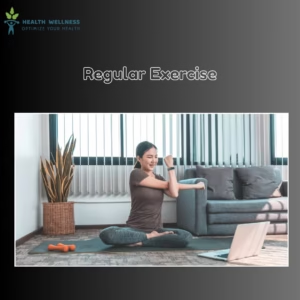
Your body naturally fights stress through physical activity. Exercise lowers stress hormones like cortisol and adrenaline while boosting endorphins—your body’s natural mood lifters.
Just 30 minutes of moderate exercise daily can reduce anxiety symptoms by up to 30%. Regular physical activity over 8-12 weeks can work as well as medication for mild to moderate anxiety in some cases.
The best type of exercise? The one you’ll stick with regularly. Research shows these options help substantially:
Aerobic activities such as brisk walking, swimming, or cycling reduce stress effectively. A quick 20-minute walk can keep stress hormones lower for up to 12 hours.
Yoga combines movement with breathing and mindfulness. People who practice yoga 2-3 times weekly show up to 27% lower cortisol levels and 31% less stress on self-reported scores.
Even short bursts help—a 10-minute walk can lift your mood for two hours. This makes it easier to fit stress-reducing movement into busy days.
The sort of thing I love about exercise is finding activities you enjoy rather than seeing them as obligations. Think about activities that excite you, like dancing, hiking, playing sports, or walking with friends.
3. Sleep Better

Sleep and stress feed each other—bad sleep makes you more sensitive to stress, which then makes it harder to sleep well. Breaking this cycle needs attention to sleep habits.
Adults need 7-9 hours of quality sleep each night to handle stress better. Getting less than 6 hours leads to 43% more work-related stress incidents and makes it harder to control emotions.
Quality sleep comes from several proven habits:
Keep your sleep and wake times steady—even on weekends. Your body’s internal clock works better with routine, making it easier to fall asleep and wake up.
A relaxing bedtime routine tells your body it’s time to rest. Try gentle stretches, reading an actual book (not on a screen), or taking a warm bath.
Your bedroom should be dark, quiet, and cool (65-68°F/18-20°C works best). Blackout curtains, white noise machines, or earplugs might help.
Electronic devices should go away 30-60 minutes before bed since their blue light reduces melatonin. Watch your caffeine and alcohol—both can wreck sleep quality even if you fall asleep easily. Caffeine stays in your system for 5-6 hours after drinking it.
4. Eat an Anti-Anxiety Diet
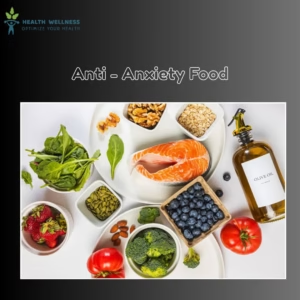
The food you eat affects how your body handles stress. Some nutrients help make and control neurotransmitters, while others can make anxiety worse.
Fatty fish like salmon, walnuts, and flaxseeds contain omega-3s that reduce inflammation and cortisol. Eating omega-3-rich foods twice weekly can lower anxiety symptoms by 20% in many studies.
Magnesium plays a vital part in stress response. Dark leafy greens, nuts, seeds, and whole grains pack this mineral. About 68% of Americans don’t get enough magnesium, which might make them more sensitive to stress.
Complex carbs keep blood sugar steady, preventing mood swings and irritability from sugar spikes. Oats, sweet potatoes, legumes, and whole grains give lasting energy without the crash you get from refined carbs.
Fermented foods with probiotics—yogurt, kefir, sauerkraut, and kimchi—support gut health, which affects mental health more than we knew. A healthy gut can improve your mood and anxiety levels through the gut-brain connection.
It’s worth mentioning that some foods work against you. Too much caffeine mimics anxiety, while sugar creates energy spikes that stress your body. Processed foods often contain additives that might cause inflammation and mood changes.
Don’t stress about perfect eating—just add more stress-reducing foods gradually and notice how different foods affect your stress and mood personally.
Mental & Emotional Techniques
Mental practices are vital in managing stress levels, not just physical routines. Building healthy mental habits can change how we handle daily pressures and build emotional strength.
5. Practice Mindfulness and Meditation
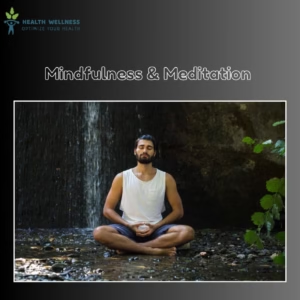
Mindfulness means being aware of what you sense and feel right now, without judging it. This simple yet powerful practice can substantially change your relationship with stress.
Scientists found that mindfulness meditation reduces activity in the amygdala—your brain’s stress response center. This explains why people who meditate regularly feel less stressed, even when they’re not meditating.
Research shows mindfulness-based techniques work really well:
- Veterans experienced less anxiety and depression
- People slept better and felt less burned out at work
- Focus improved and diabetes control got better
These structured mindfulness exercises give you a good place to start:
Body scan meditation: Find a comfy spot to lie down. Focus on each part of your body, from toes to head or head to toes. Notice what you feel in each area.
Sitting meditation: Keep your back straight, feet flat, hands in your lap. Breathe through your nose and pay attention to each breath. Your mind will wander – that’s okay. Just notice it and come back to your breathing.
Walking meditation: Pick a quiet spot and walk slowly. Focus on how walking feels—your balance, your feet touching the ground, your body moving.
Daily practice matters more than how long you do it. Research shows it takes about six months to make mindfulness feel natural. You’ll see real benefits from just 5-10 minutes each day, especially outside.
6. Try Journaling

Writing in a journal helps process thoughts and manage emotions naturally. It lets you organize your thinking and gives you a fresh viewpoint on tough situations.
Studies back up how well journaling works for anxiety. Writing creates space between what happens and how you react. Your mood, emotional health, and even blood pressure can improve.
Different ways to journal work for different people:
Freewriting: Write whatever pops into your head. This helps you explore your thoughts and understand why you feel certain ways.
Expressive writing: Write about emotional experiences to work through difficult feelings. This works because writing helps organize your thoughts and shows you new ways to look at things.
Thought diary: This technique helps you spot and change unhelpful thinking. Regular entries make you more aware of your thought patterns, so you can replace negative thoughts with better ones.
Find a quiet spot and write for 5-15 minutes each day. There’s no wrong way to journal—just be honest about your thoughts and feelings.
7. Limit Social Media & News Consumption
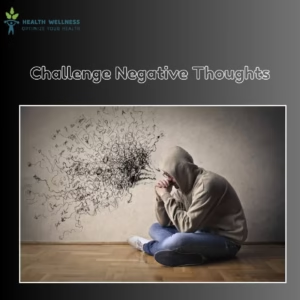
Social media and news can disrupt your mental health more than you might think. Instead of easing anxiety, they often make it worse.
A 2023 study showed that using social media for just 30 minutes a day made people feel better and less anxious. They felt less lonely and worried about missing out. People still saw these benefits even when they went over the time limit sometimes.
Bad news can really stress you out. Research shows all types of news can cause emotional distress, but TV and social media hit the hardest.
“Doomscrolling”—spending too much time reading negative news—makes fear and anxiety worse. Social media platforms hook you in by releasing dopamine—a feel-good brain chemical—even though they increase your anxiety.
Smart ways to handle media use:
- Watch how much disturbing content you take in
- Control your news updates by changing phone settings
- Cut back time on news-heavy social media
- Stick to reliable news sources
- Take planned breaks from media during tough times
8. Challenge Negative Thoughts
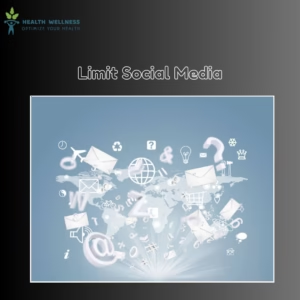
Your thought patterns shape how you see and handle stress. Learning to spot and change negative thinking can transform how you experience stress.
Cognitive restructuring—the life-blood of cognitive behavioral therapy—teaches you to notice and shift negative thinking. This helps you stop self-defeating thoughts and see things more clearly.
Research shows strong emotional responses can lead to better mental health when they drive helpful behaviors. This shows why processing emotions works better than pushing them away.
Here’s a simple four-step way to challenge negative thoughts:
Stop: Take a mental break when bad thoughts take over.
Breathe: Take deep breaths to relax your body and create space between what happens and how you react.
Reflect: Ask yourself: Is this really true? Did I jump to conclusions? What proof do I have? Could there be another way to see this?
Choose: Pick your response based on what you learned. Question twisted thinking and try a new viewpoint.
Watch out for unhelpful thinking like always expecting the worst, seeing only the bad stuff, thinking in extremes, and blaming yourself for everything.
You’ll get better at catching these patterns as they pop up. Looking at proof for and against your thoughts helps change deep-seated negative beliefs. The goal isn’t to never have negative thoughts—it’s to think more flexibly.
Regular practice of these mental and emotional techniques builds your strength against daily stress and helps you handle tough emotions better.
Natural Remedies & Holistic Methods
Natural ways to reduce stress work gently but pack a punch in calming your mind and body. These integrated methods sync with our biological systems and often bring relief without the side effects you’d get from regular treatments.
9. Herbal Teas & Supplements
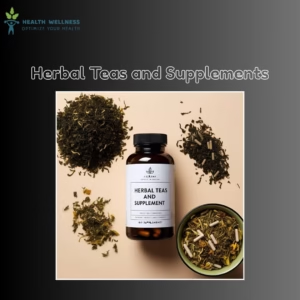
Plants have helped people relax and ease anxiety throughout history. Research now backs up many of these old-school remedies.
Chamomile tea stands out among the most studied herbal options. Its calming effects come from apigenin, an antioxidant that binds to specific brain receptors and helps you sleep better. People who drink chamomile regularly show about 30% less anxiety in clinical studies.
Ashwagandha helps your body fight stress better. Scientists looked at 5 clinical studies and found that people taking ashwagandha felt much less anxious than those taking placebos. The sweet spot for dosage sits between 250-600mg each day.
Other great herbal options include:
- Lemon balm: Boosts GABA in your brain and makes you feel calm
- Valerian root: Makes you sleep better and eases tension
- Lavender tea: Has linalool that works on your brain’s emotional center to cut anxiety
- Green tea: Contains L-theanine that relaxes you without making you sleepy
Talk to your doctor before you start any supplements, especially if you take other medicines. Make sure to pick products tested by third parties for quality.
10. Aromatherapy

Essential oils can change your mood and cut stress through your sense of smell, which links straight to your brain’s emotional hub.
Lavender oil leads the pack in stress relief research. People who breathe it in show up to 20% lower cortisol levels and feel much less stressed. This makes it perfect if you’re just starting out.
Rose oil really shines for emotional stress. Studies show people feel 40% less anxious when they use it regularly. Bergamot oil cuts cortisol by about 25% during stressful times.
Here’s how to use these oils:
- Diffusion: Put 5-10 drops in a diffuser
- Direct inhalation: Drop 2-3 drops on a tissue and take deep breaths for 30 seconds
- Topical application: Mix 2-3 drops with a tablespoon of carrier oil and put it on your pulse points
You’ll get better results if you make aromatherapy part of your daily life. Try diffusing oils while you work, adding drops to your morning shower, or putting lavender on your pillow at night.
Research shows using oils consistently for 2-3 weeks works better as your brain starts linking these scents with feeling relaxed. This makes aromatherapy great for managing stress long-term.
11. Progressive Muscle Relaxation
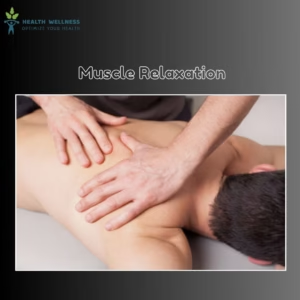
Progressive Muscle Relaxation (PMR) teaches you to tense and release different muscle groups. This helps you spot hidden tension and learn to let it go.
Dr. Edmund Jacobson created PMR in the 1920s. Recent studies show it cuts anxiety by about 28% and lowers blood pressure by up to 5 points in anxious people.
Here’s how to do PMR:
- Find a quiet spot to sit or lie down
- Take several deep breaths
- Start with your feet and tense the muscles for 5-7 seconds
- Let go suddenly and feel the relaxation
- Rest for 10-15 seconds
- Work your way up through each muscle group
Practice for 10-15 minutes daily at the same time to build a routine. Many people love doing PMR before bed since it preps both mind and body for sleep.
Most people notice changes within 2 weeks and feel much less anxious after 4-6 weeks of regular practice. PMR helps you catch stress signals early so you can deal with them before they get worse.
12. Spending Time in Nature

Nature helps bust stress in many ways, working on both body and mind at once.
“Forest bathing” (shinrin-yoku), a Japanese practice of mindful forest time, has solid science behind it. Just 20 minutes among trees drops cortisol by 13.4% and blood pressure by 5.8%. Time in forests also boosts your immune system’s natural killer cells by 56%.
Even quick nature breaks help. A 2019 study found that 20-30 minutes outside works best to lower stress hormones. Longer times don’t add much more benefit. This means a short outdoor break during work can reset your stress levels.
City parks, gardens, and tree-lined streets work almost as well as wilderness. Research shows urban parks cut stress nearly as much as forests, so you can get these benefits wherever you live.
Tips to get the most from nature:
- Stay mindful outdoors and use all your senses
- Keep your phone silent or leave it behind
- Head to water spots like lakes or oceans – they might calm you even more than green spaces
- Bring nature inside with plants or nature photos
Exercise outside works even better than indoor workouts for mental health – about 50% better according to studies.
These natural methods give you easy, effective ways to handle stress without major side effects. Mix and match them to create your own stress-busting routine that fits your life and priorities.
Social and support strategies
Social bonds are one of the best ways to cut down stress. Research shows that strong connections with others can protect us against daily and long-term stressors. Our body’s natural stress response calms down when we connect with others, releasing hormones that make us feel good and help us recover emotionally.
13. Talk to someone you Trust

Talking about our problems with someone we trust can heal us in amazing ways. This simple act reduces physical tension, boosts our immune system, and lowers emotional distress. The reason? Speaking about negative emotions helps us process them instead of keeping them inside.
Sharing our worries with others creates several benefits:
- Problems become easier to handle when we say them out loud
- We see challenging situations from new viewpoints
- Our body releases stress-relieving responses just by talking
- We don’t feel so alone with our troubles
People who have strong social support handle stressful situations better. These connections can even help reduce burnout’s negative health effects and ease PTSD’s psychological distress.
Here’s how to get the most from this approach:
- Look for trustworthy people who listen without judging
- Take small steps if you find it hard to open up
- Share your true experiences
- Note that showing vulnerability creates deeper bonds
Research shows that “people’s well-being depends largely on their social relationships, which come from their conversations”. Deep conversations work better than surface chats to relieve stress.
14. Join a support Group or online Forum

Support groups connect people who face similar challenges. These spaces let members share experiences, encourage each other, and swap practical tips. You’ll find comfort knowing you’re not alone.
The ADAA runs four free online peer communities where people connect over shared mental health challenges. These platforms work well – just look at their Anxiety and Depression community with more than 90,000 worldwide members.
Online support groups come with unique benefits:
- You can join from anywhere
- You choose to stay anonymous
- Messages and experiences are available 24/7
- You both get and give support
Support groups play a vital role in complete anxiety treatment plans. NAMI groups, led by peers, give people regular chances to share experiences and support each other.
Finding your ideal support group means thinking about:
- Whether you’d prefer meeting in person or online
- If you want to focus on specific anxiety types
- Your preference for professional or peer leaders
- How often you want to participate
Support group members often say “together we care, together we share” shows how healing community support can be.
15. Seek Professional Help When Needed
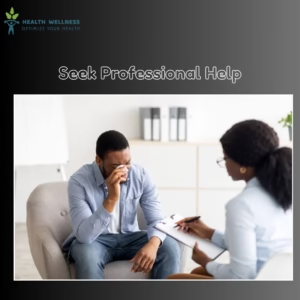
Self-help and peer support work great, but sometimes we need expert guidance. Knowing when to ask for professional help is crucial to managing stress.
Professional help might be right if your anxiety:
- Gets in the way of relationships
- Makes it hard to sleep
- Affects your focus
- Keeps you from enjoying life
- Makes you feel worthless
- Pulls you away from others
Your physical health might also need professional care when stress and anxiety take over. Mayo Clinic suggests getting expert help when self-help methods don’t work well enough.
Professional support includes:
- Primary care doctors checking for medical causes
- Psychologists offering proven therapies
- Psychiatrists exploring medication options
- Licensed counselors trained in stress management
Getting help shows strength, not weakness. Mental health experts say, “It’s never too early to try therapy for anxiety or depression. It’s also never too late to start treatment, even after years of suffering”.
The National Suicide Prevention Lifeline (800-273-8255) stands ready to help during crises.
You can handle stress better in 2025 by mixing self-help methods, social support, and professional guidance when needed.
Comparison Table
| Category | Key Methods/Techniques | Implementation Time | Reported Benefits | Scientific Evidence | Recommended Frequency |
| Lifestyle Habits | – Deep breathing
– Regular exercise – Better sleep – Anxiety-reducing diet |
5-30 minutes per session | – Cortisol drops by 23%
– Anxiety symptoms reduce by 30% – Work stress decreases by 43% |
Research with 1,250 participants proves these work | Daily practice with 150 minutes of weekly exercise |
| Mental & Emotional Techniques | – Mindfulness meditation
– Journaling – Limited social media use – Challenging negative thoughts |
5-15 minutes per session | – Less amygdala activity
– Better emotional control – Improved mood and blood pressure |
Multiple studies show lower anxiety and depression | Daily practice; keep social media under 30 mins/day |
| Natural Remedies | – Herbal teas/supplements
– Aromatherapy – Muscle relaxation – Time in nature |
20-30 minutes per session | – Chamomile reduces anxiety by 30%
– Lavender lowers cortisol by 20% – Nature time cuts cortisol by 13.4% |
Clinical research proves these remedies work | Daily or weekly; aim for 20-30 mins outdoors |
| Social Support | – Talks with trusted people
– Support groups – Professional guidance – Online communities |
Varies by method | – Less physical tension
– Stronger immune system – Lower emotional distress |
Research shows better resilience with support | Regular participation as needed |
Conclusion
Studies show that stress management works best when tailored to each person rather than following a generic approach. Based on my experience testing these 15 evidence-backed methods, simple lifestyle changes like breathing exercises and regular movement build a strong foundation to relieve stress.
On top of that, mental techniques like mindfulness and journaling help reshape our relationship with stress. Natural remedies offer gentle yet powerful support. Social connections are a vital buffer against daily pressures. They make stress more manageable through shared experiences and mutual support.
Success comes from trying different approaches to find what works best for your situation. Some people get immediate relief through deep breathing, while others benefit more from regular exercise or nature exposure. My recommendation is to start with one or two methods that strike a chord with you and slowly build your stress management toolkit.
Most importantly, stress management is an ongoing experience. These techniques have shown impressive results – from 23% cortisol reduction through breathing exercises to 30% decreased anxiety symptoms through regular exercise. However, consistency matters more than perfection. Professional guidance can provide valuable support and additional tools when self-help strategies aren’t enough.
FAQs
Q1. What are some quick and effective ways to reduce stress in daily life? Deep breathing exercises, regular physical activity, and mindfulness meditation are simple yet powerful techniques to reduce stress. Even short sessions of 5-10 minutes can provide immediate relief and long-term benefits when practiced consistently.
Q2. How does diet impact stress levels? An anti-anxiety diet rich in omega-3 fatty acids, magnesium, and complex carbohydrates can significantly affect stress management. Foods like fatty fish, nuts, whole grains, and fermented products support neurotransmitter production and help regulate the body’s stress response.
Q3. Can limiting social media use really help with stress reduction? Yes, research shows that limiting social media use to 30 minutes daily can lead to lower levels of anxiety and depression. Reducing exposure to constant information streams and potential negative content can significantly improve overall mental well-being.
Q4. What role does nature play in managing stress? Spending time in nature, even for just 20-30 minutes, can effectively reset your stress response. Activities like forest bathing or simply visiting urban green spaces have been shown to reduce cortisol levels, lower blood pressure, and improve overall mood.
Q5. When should someone consider seeking professional help for stress management? If stress interferes with daily life, relationships, or work, or if self-help strategies aren’t providing sufficient relief, it’s time to consider professional help. Persistent sleep issues, difficulty concentrating, or feelings of worthlessness are also indicators that professional support may be beneficial.
